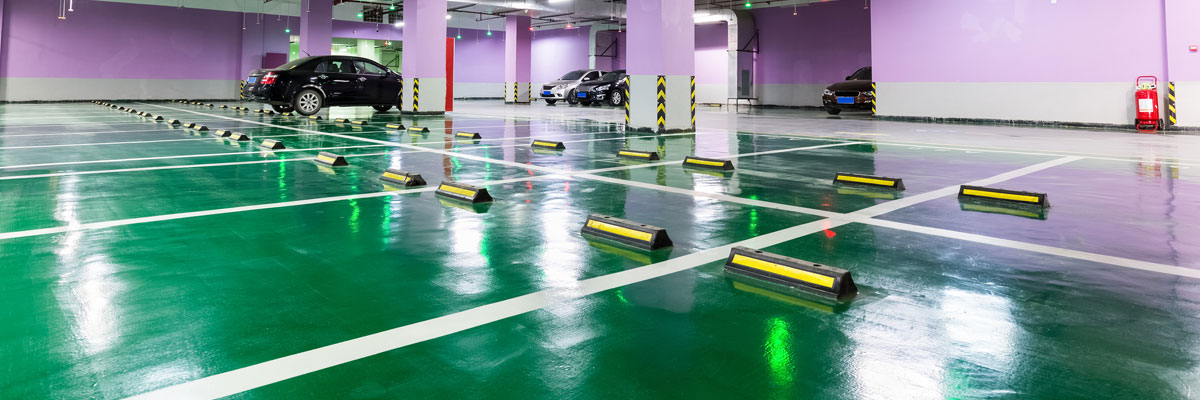Epoxy floor coatings are one of the leading flooring solutions for commercial and industrial facilities with a growing demand for residential use as well. While no flooring system is perfect, the advantages of epoxy resin outweigh the drawbacks for many applications. To help you make an informed decision, here are the most important pros and cons of residential and commercial epoxy flooring.
Pro: Economical Flooring System
Compared to many other forms of flooring, epoxy floor coatings have a low cost per square foot. The epoxy system can be installed directly over existing concrete without the need to install a separate floor system. The initial cost of epoxy is higher than some alternatives like concrete polishing. However, when the epoxy eventually wears out and needs to be replaced, the replacement cost is lower because the concrete substrate does not need to be prepared. This gives epoxy flooring a low lifecycle cost compared to other solutions.
Pro: Excellent Resistance to Damage
Commercial epoxy floor coatings are extremely resistant to most hazards, including cleaners, gas, oil, transmission fluid, and even most industrial chemicals. Along with resisting damage from chemicals, an epoxy coating is water-resistant and heat-resistant. This makes it an excellent choice for high-demand environments like auto shops, factories, labs, medical facilities, and retail stores.
Pro: Long Life
Epoxy’s longevity is a big selling point for facility managers, business owners, and homeowners who want a low-cost and durable flooring solution that lasts. Depending on the application, professional commercial epoxy floor coatings can last for 7 to 20+ years. Industrial epoxy flooring tends to have the lowest lifespan because it is exposed to frequent vehicle traffic, chemicals, and heavy loads. Epoxy basement floor coatings, on the other hand, can easily last decades.
Pro: Easy to Customize
With epoxy floor coatings, you can achieve the precise look you want. Along with almost limitless color options, epoxy flooring can be customized with unique and beautiful effects like flake flooring, geometric patterns, logos, and metallic epoxy flooring. Epoxy flooring can be customized with the design or pattern of your choice which makes it an ideal solution for home basements, garages, retail stores, and shopping centers. It can also improve safety and foot traffic in commercial and industrial properties with striping and warnings.
Con: Difficulty Adhering in Moist Environments
An epoxy basement floor is an economical solution for home basement flooring because it’s seamless, easy to clean, attractive, and resists moisture. Unfortunately, it can be difficult to use in a basement with moisture problems. As long as the basement concrete slab is properly dried and prepared, the epoxy should adhere properly. If the floor is moist or the basement has chronic moisture issues, the epoxy may lift off the floor.
Con: May Be Slippery
Epoxy flooring isn’t as slippery as it looks and it’s easy to add a skid-resistant additive to the topcoat to make the floor very safe, even when wet. Without a nonslip additive, epoxy flooring can become very slippery when wet, especially with oil spills.

